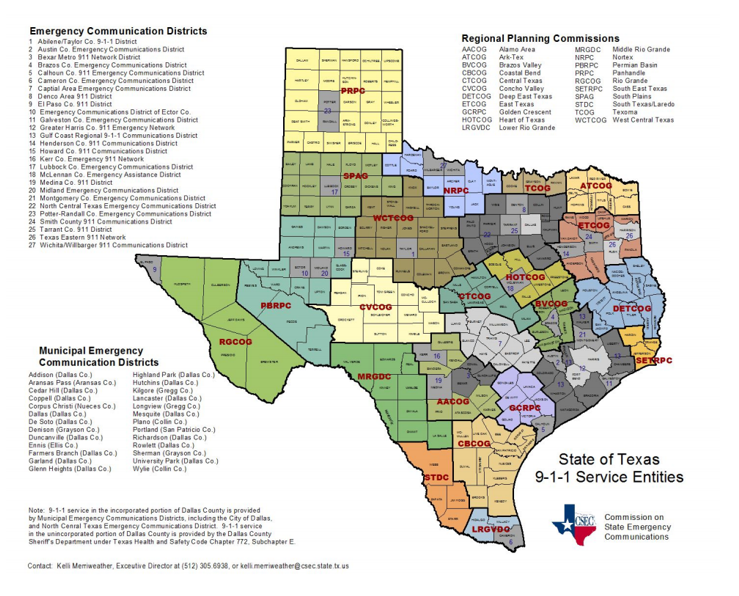
We get a lot of questions about how much 911 costs and where the financing comes from. Do citizens pay for 911? Do taxes? How do officials determine how much goes toward an emergency number program when they also have to consider other aspects of public safety?
We wanted to clear some things up on how much 911 costs.
What is a 911 fee?
Pull up your latest phone bill. It can be for your landline (if you still have one) or a cell phone. Depending on your service provider, such as Verizon it may be in a different place, but if you review the itemized version of your “taxes and government fees” section of your bill, you’ll notice a charge titled “State 911 Fee,” or something similar. The only exception will be T-Mobile, who doesn’t mark the 911 fee, but it’s still there. That is how 911 is funded in your area.
For the North Central Texas Emergency Communications District, the charge is $0.50. However, it could be more or less depending on what state you live in, which county within that state, and which city in that county. You can review a list of 911 fees by state here. It may vary based on the type of local government you have, or based on a decision made by your previous state legislator five years ago. It could change next time your state legislators meet for a session. The point we’re trying to make is that 911 funding is complicated and there is a lot of variation across the country, but we’ll go into some more detail about how it works in Texas to give you a better idea.
Who collects the fee?
You’ll see that the person you’re paying your hard earned cash to isn’t NCT9-1-1, but rather your individual service provider. How does it go from their hands to funding your safety and the safety of your community? That process will depend on what type of 911 entity your city or county is located in. To keep it simple, we’ll divide entities by districts (emergency communications districts and municipal emergency communications districts) and regional planning commissions.

911 Districts
- For Landlines
Landline fees may vary by district and are determined by a district’s board of managers, which is made up of elected or appointed officials within the district’s service area. You can review the NCT9-1-1 board of managers here. It is the responsibility of the service provider to collect landline fees and give them to the individual districts, but the district is responsible for informing the providers of its rates.
- For Wireless
Wireless fees are consistent statewide. Everyone in Texas pays a $.50 911 fee for their mobile service, regardless of the 911 district they live in. The Texas State Comptroller collects these wireless fees from telephone carriers and places them into a trust fund to await distribution by the Commission on State Emergency Communications (CSEC). CSEC will then distribute those fees based on population.
Regional Planning Commissions
If you’re located in a RPC, your 911 fees are established by a statue (Health and Safety Code 771.071 to be specific) and both wireless and landline are collected by the service provider and then placed in the appropriate trust fund. From there, CSEC distributes the funds to RPC’s across the state based on a variety of factors.
What is the funding used for?
The 911 fees at NCT9-1-1 are used for multiple kinds of projects including:
- Vendors/services who provide equipment and technology to the 911 system. This can include mapping technology, call handling equipment, data storage, and more.
- Public education campaigns to bring awareness to proper 911 use.
- Training and courses for new 911 telecommunicators and to maintain the licenses of veterans. Everything from crisis communications, to fire dispatch, to mental health awareness, to leadership training for managers and supervisors.
- A whole lot more that we couldn’t possibly list it all.
Depending on where you live, your local government agencies may have a different process for collecting 911 fees, but that’s a quick summary of how it works in Texas. For more information on our 911 program, visit the NCT9-1-1 FAQ.